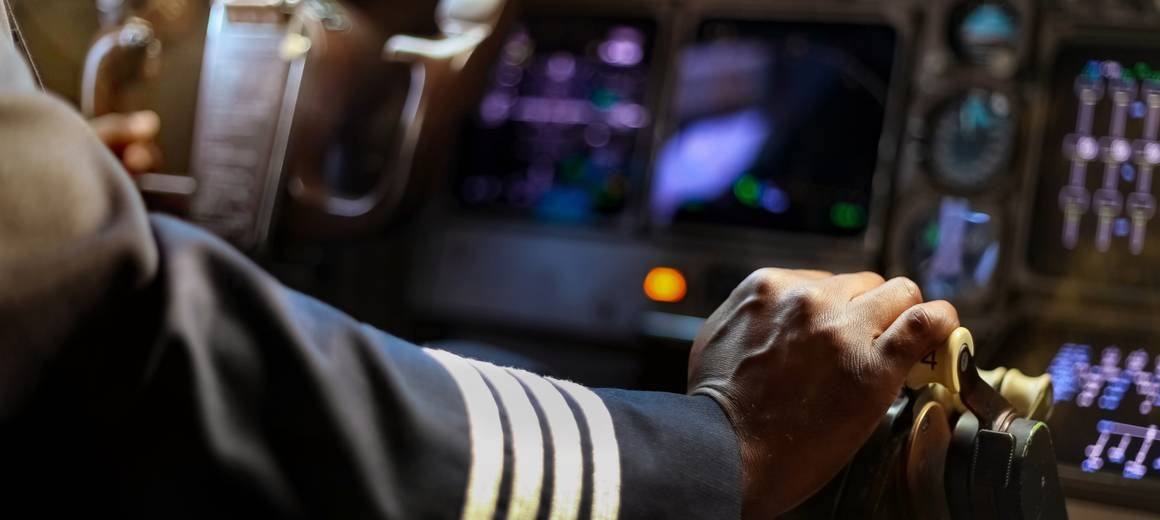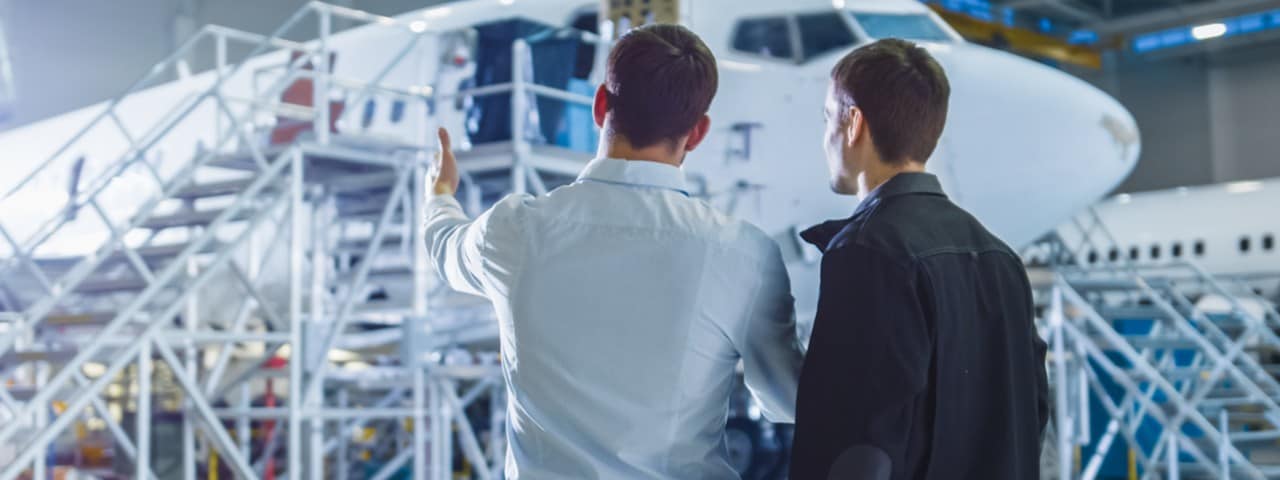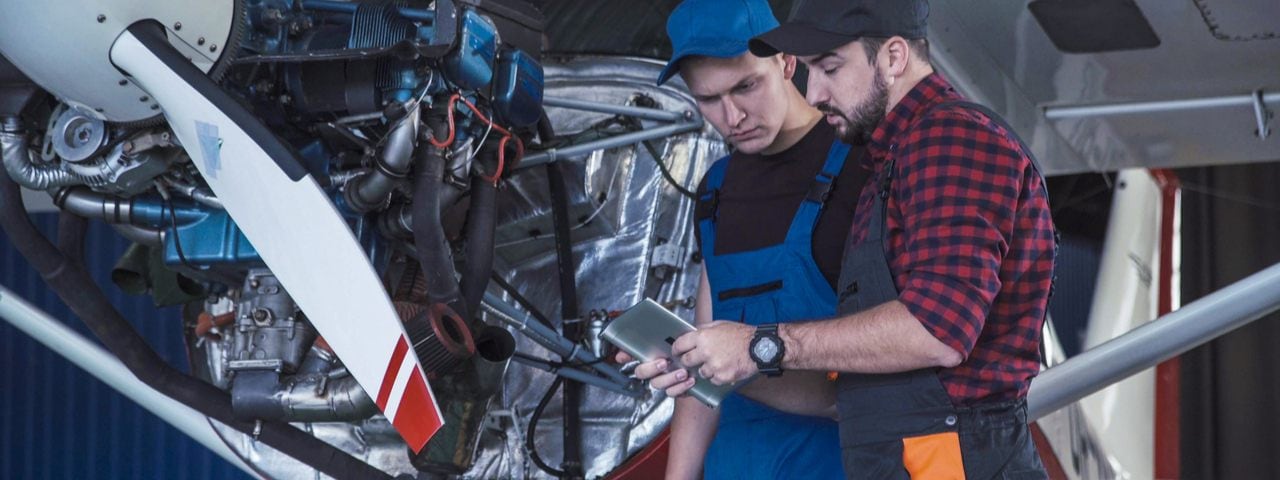Five of the Highest Paid Aviation Jobs
It’s important to enjoy your job, and it helps when it can make sure that you and your family are financially secure. A career in the aviation industry can provide challenge and excitement while also offering a decent pay cheque. We take a look at a variety of potential career paths and some of the highest-paying aviation jobs today.
1. Commercial airline pilot
Average annual salary: £123,000
Commercial airline pilots are some of the highest-paid professionals in the aviation industry, earning an average salary of £123,000 per year, with some earning as much as £150,000 annually for senior pilots employed in large corporations or major airlines. While this is far above the average annual salary in the UK of £29,600, this aviation job comes with a number of extreme demands, from the expense and dedication that goes into the specialised training to the ability to stay calm under pressure and deal with emergencies. Pilots must also understand and keep pace with evolving high-tech cockpit technology, possess exceptional communication skills and cope with the emotional challenges of being away from home for long stretches of time.
According to the British Airline Pilots Association (BALPA), it can take several years and cost up to £80,000 to train for an airline transport pilot licence (ATPL). The process involves a medical, 750 hours of ground-school training, exams and a minimum of 195 hours of flight training to become a first officer. After that, first officers must complete a further 1,500 hours of flying before they can apply for a job in aviation.
Annual salaries for private pilots or charter pilots who fly luxury private jets for individual clients or private jet charter companies, vary from £71,000, for pilots who have under two years’ experience, to as much as £179,000, for pilots with more than 20 years’ experience.
2. Aerospace engineer
Average annual salary: £90,500
As we’ve seen with pilot salaries, large pay cheques usually mean high job demands. A career as an aerospace engineer is no different. This highly specialised job requires a Bachelor’s degree and often a Master’s in aerospace sciences, avionics or aeronautical engineering. Once qualified and with some experience under the belt, top aerospace engineers can earn more than £140,000 per year. The role involves working with other engineers to design, test, refine and maintain aircraft and avionics equipment.
So what skills do you need to become an aerospace engineer? Applicants must be able to find innovative solutions to problems, have good maths skills as well as proficiency in management and communications; and be able to use computer-aided design (CAD) software. Would-be aerospace engineers are also expected to work within budgets and briefs, and keep up with new aviation technologies.
3. Air traffic controller
Average annual salary: £79,900
Competition is still fierce for most of the highest-paid aviation jobs, but this is especially true for air traffic controllers, who earn an average salary of £79,900 a year. But it pays to think long-term: traffic controllers with more than 20 years’ experience can earn as much as £119,000 a year. Applicants are usually expected to have a degree and must pass a difficult selection process that includes completing a training programme of up to three years. Jobs are based in traffic control towers or centres, and NATS is the UK’s leading provider of air traffic control services, and also one of the key organisations for training and recruiting new controllers.
This aviation job is a stressful one, with air traffic controllers having to demonstrate sharp concentration and attention to detail, since it’s their responsibility to monitor traffic and keep the airways safe. Duties include tracking aircraft distances and directions, liaising with pilots and monitoring ground movements, and take-offs and landings. Air traffic controllers must also need to be able to use technical radar and radio communication equipment.
4. Air marshal
Average annual salary: £41,000
Air marshals, also known as sky marshals, are operatives who provide on-flight security services. In the UK, this job is performed by Met Police officers who have completed intensive training courses. An air marshal’s duties include acting as a plain-clothed security officer on board commercial flights, providing on-flight security to deal with any criminal activity or terrorism incidents. Security specialists may also work in airports and must have good observational skills to detect suspicious activity. This is a high-pressured job that requires extreme attention to detail and the ability to remain calm under pressure.
5. Aircraft mechanic
Average annual salary: £36,100
Aircraft mechanics (also known as airframe and powerplant mechanics) carry out repairs, inspections and maintenance on different types of aircraft. They must be able to diagnose and fix everything from electrical problems to mechanical failures across all parts of the plane, including the brakes, landing gear and engine. This requires exceptional troubleshooting skills, awareness of the smallest details, good communication skills, reliability, hands-on competence, and a willingness to keep learning and upskilling.
In the UK, eligibility for aviation mechanic jobs requires the completion of a degree, followed by an apprenticeship with an airline manufacturer, operator or engineering company. Mechanics can work across many types of aircraft or choose to specialise, and must stay constantly up to date with industry regulations and standards. An aircraft mechanic with more than 20 years’ experience could earn more than £56,000 per year.
Other top aviation jobs
If you are considering other career paths, here are some more popular options in the aviation field and their average annual salaries:
-
Airport manager (£63,900)
-
Flight dispatcher (£63,500)
-
Flight instructor (£62,500)
-
Avionics technician (£47,870)
-
Flight attendant (£47,200)
-
Ground attendant (£20,000)
Air Charter Service (ACS) is passionate about supporting the next generation of aviation leaders and scientists. We offer student grants and scholarships of up to £4,000 per student to kick-start your career. This helps to offset the cost of tuition fees and research so you can find employment in your chosen field. Find out more about eligibility and how to apply for an ACS aviation grant or scholarship here.
Take your next trip by private plane with ACS
If you’re looking to book a private flight for your next business or leisure trip, let Air Charter Service (ACS) organise your itinerary. We can offer you a broad range of charter aircraft to choose from, and have offices all around the world. As well as keeping our customers updated with all the air travel news and industry developments, we’re also proud of our investment in the next generation of aviation specialists. Contact us to plan your private flight today.
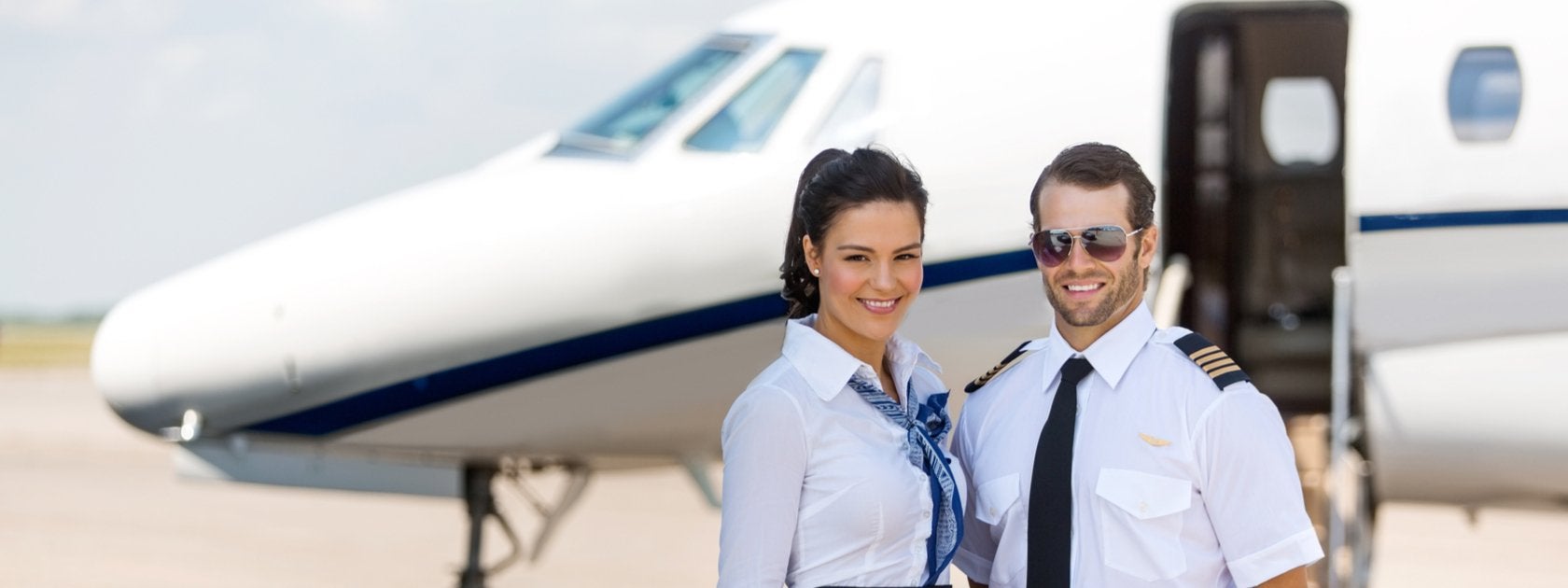
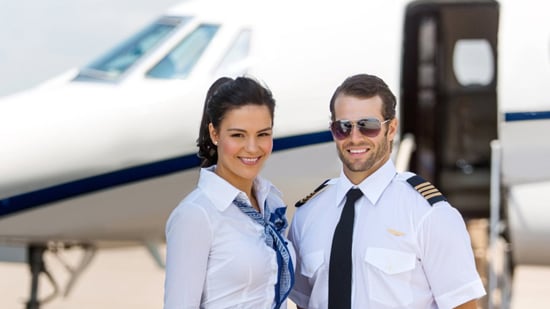 There’s more to aviation jobs than pilots and cabin crew. If you want to be part of an industry that values skills and continuous training, and provides employees with a challenging and dynamic work environment, join us as we take a look at some of the best opportunities in aviation today.
There’s more to aviation jobs than pilots and cabin crew. If you want to be part of an industry that values skills and continuous training, and provides employees with a challenging and dynamic work environment, join us as we take a look at some of the best opportunities in aviation today. 


